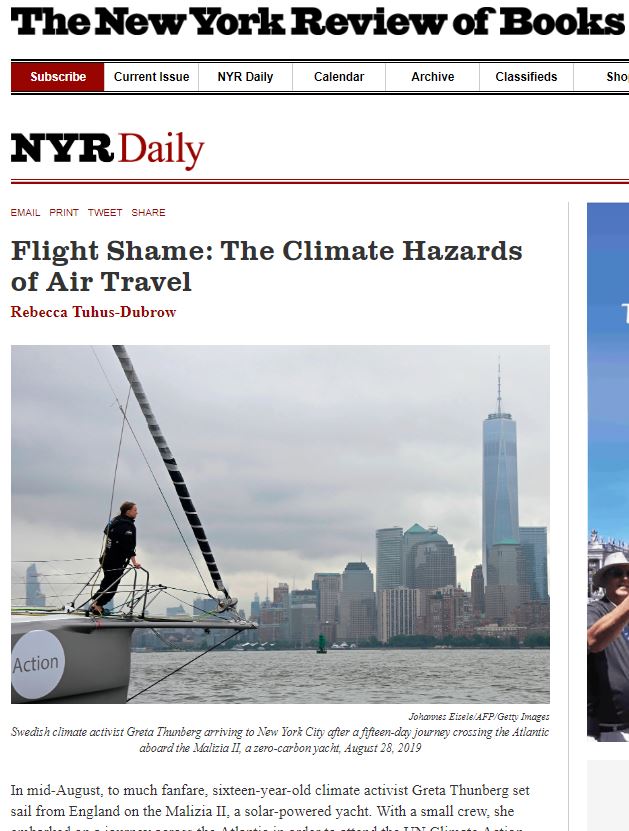Please join us for the second annual #flyingless New Years Eve Eve party online Dec 30 at 3pm eastern USA time (8pm UK time, 9pm Western Europe). It was fun last year, and we are expanding this year.
We will have short speeches and toasts on themes of effective work and joyful living without flying. For the many people around he world taking a #FlightFree2020 pledge, this event may serve as a conversation starter in advance of New Years Eve parties the following night.
See below for technical details about how to participate.
Many of the participants come from our vibrant international Twitter community:
- Myself, Parke Wilde, at Tufts (@flyingless) and Joe Nevins at Vassar College (@jonevins1), the co-organizers for the university #flyingless petition initiative. The Boston party may also have greetings from Shoshana Blank in the Tufts Office of Sustainability (@GreenTufts) and Janie Katz-Christy of Green Streets. Email us (academicflyingpetition@gmail.com) for location details if you would like to attend in person in Boston.
- #FlightFree2020 organizers around the world including Maja Rosén in Sweden (@flygfritt), Ariella Granett in the United States (@FlightFreeUSA), and Anna Hughes in the UK (@FlightFree2020).
- Kimberly Nicholas (@KA_Nicholas). Lund University. Sweden.
- Peter Kalmus (@ClimateHuman). California. Organizer of the inspiring No Fly Climate Sci site and author of Being the Change: Live Well and Spark a Climate Revolution.
- Genevieve Guenther (@DoctorVive). Leader of End Climate Science. New York City.
- Aarne Granlund (@AarneGranlund). Climate mitigation professional. Finland.
- Kim Cobb (@coralsncaves), a climate scientist and environmental leader, and Blair MacIntyre (@blairmacintyre), an innovator in virtual reality social connections with Mozilla Hubs. Georgia Tech. Atlanta.
- Larry Edwards (@RadReduction). Sitka, Alaska. A contributor to Stay Grounded.
- Roger Tyers (@RogerTyersUK), who took a train from the UK to China this year.
- Joshua Spodek (@spodek), who discusses flying less in a TedX talk.
After initial toasts from these folks, we will open the event up for additional participants if feasible (it partly depends on the number of participants). WebEx also has a chat window for additional conversation.
If you would like a food element to connect across the sites, consider this vegan cookie recipe from the wonderful cookbook author and #flyingless supporter Linda Watson (@cookforgood).
To make it a party, consider inviting some friends to this event and choosing a location that has some local visual meaning or “sense of place.” For example, our Boston event will have window views of the Boston skyline and harbor in the late afternoon.
In addition to being a party, this event is practice for enhancing the social components of our ongoing initiative to develop linked simultaneous multi-site conferences. Please send comments and feedback afterwards.
We hope you enjoy this experiment in long-distance socializing! Sometimes I think that academics would be quite willing to give up most of their flying, if only we were assured of still being able to have a drink with our friends. In a time of climate grief, perhaps we should give this lots and lots of practice.
Technical details: Connect using this WebEx link. There are multiple audio options. Please mute when not speaking, and (to avoid feedback) never have more than one mic open in the same room. The webinar will be recorded, so we can make a video for sharing with people who cannot attend. You can use the WebEx chat window for troubleshooting as well as socializing. The most common difficulty is connecting WebEx with your computer’s mic and audio. There will be a WebEx practice session 2 hours before the main event.

